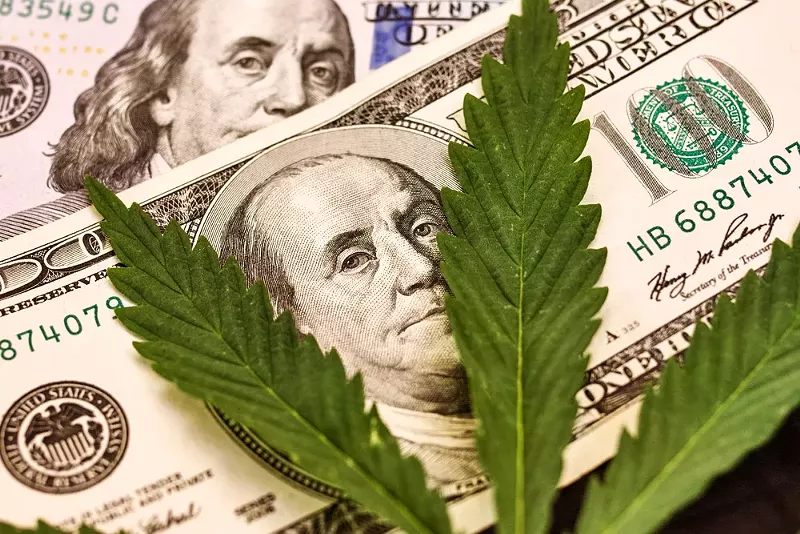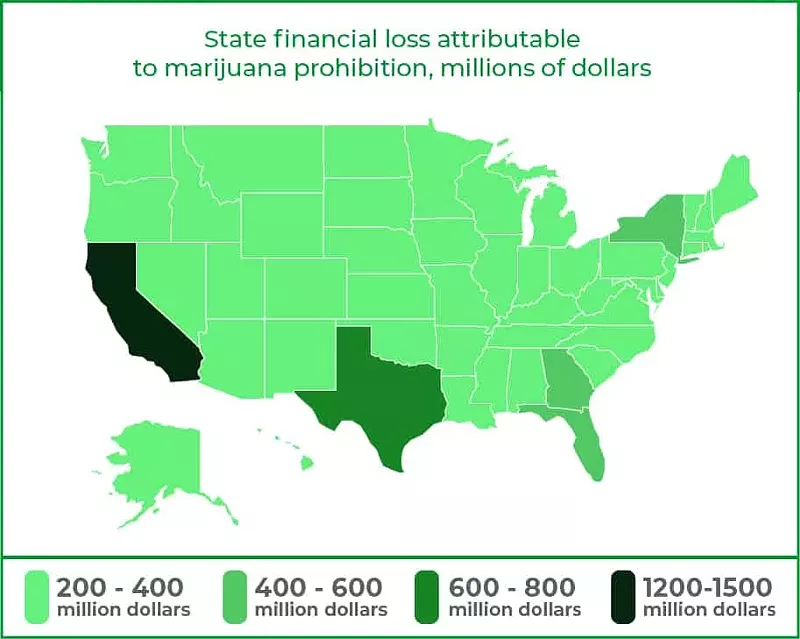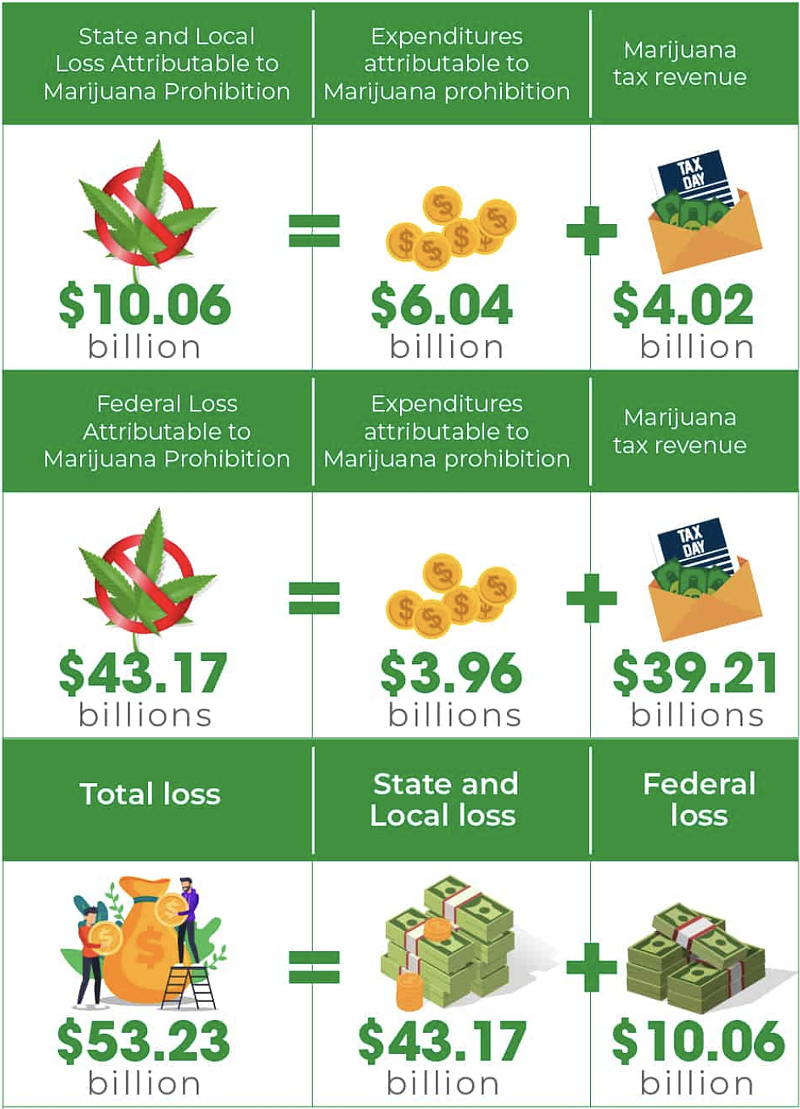
PRO Stock Professional, Shutterstock
Marijuana prohibition is costing the U.S. a whole lot of moolah, according to recent research.
According to AmericanMarijuana.org, the U.S. could be missing out on $53.23 billion a year by not legalizing marijuana, and by spending precious dollars to enforce drug prohibition policies. The research did not dive into the social or health-related implications of legalizing marijuana nationwide, but more so the fiscal impact in terms of state and federal losses and, also, where marijuana revenue is spent in those states that have medical or recreational marijuana laws.

AmericanMarijuana.org
What could $53.23 billion in revenue mean for the country aside from and an endless supply of sticky icky?
It could finance the treatment of all flu cases in America for five years or fund treatment for 37,354,386 coronavirus patients. (That's the population of Ohio, Illinois, and Pennsylvania combined, by the way.) It could also provide medical insurance for 42,858,293 people or fund the purchase of 134,075,000 boxes of 20 paper face masks for frontline workers and folks in need of personal protection gear to combat COVID-19.
Last year, Insider reported that police forces in America spend about $3.6 billion annually to enforce marijuana possession laws, resulting in about 820,000 arrests each year. To defend a marijuana arrest, it can cost an individual $2,000-$20,000 and those who are incarcerated will likely see a reduction in wage growth upwards of 30%, which has a longterm economic impact in terms of employment, reliance on government assistance, and recidivism. At the time, it was estimated that at least $100 billion is lost due to marijuana enforcement every five to six years.
Some of the data collected for this research dates back to 2016 and 2018, which preceded the start of Michigan's booming recreational pot industry. Though Michigan voters approved adult-use recreational weed in 2018, retail sales didn't began in December 2019. This year alone, Michigan stoners have bought more than $200 million worth of recreational pot products, resulting in $35 million in tax revenue since adult-use sales started.

AmericanMarijuana.org
Currently, per the ballot proposal approved by voters in 2018, Michigan's marijuana excise tax is meant to fund marijuana regulation and, for the first two years, commit $20 million per year towards marijuana-related clinical trials to test the effectiveness in treating suicidal ideation in veterans.
The proposal also states that 15% of revenue goes towards municipalities and those counties where marijuana retail stores or microbusinesses, or those people/entities that grow cannabis, process, package, and cannabis products to adults, are located. A large chunk of cannabis change, or 35% goes to K-12 education, and another 35% toward transportation, road, and bridge maintenance.
It's a new era for marijuana in Michigan. Sign up for our weekly weed newsletter, delivered every Tuesday at 4:20 p.m.

